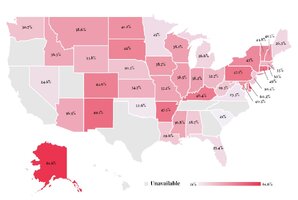I think you know the situation is more complex than just that one line, and I can see the benefits of the "make prison so bad they never want to come back" approach. Certainly there are better ways than how they are doing things today. But for those that don't get it that this is a complex issue, consider the following, which is based on how things are, not how they should be in an ideal world.Did I stutter?
If you don't trust them with a gun, don't let them out of prison on probation.
Prison is not just a punishment but also a means to rehabilitate the person and reintegrate them into society. Taking them from a controlled, restricted environment of many years and dumping them straight into society with no easy means to put them back, is not a good way to see if they have rehabilitated and are no longer a threat.
Probation allows that the person is incrementally returned, in theory, with oversight, and having the ability to put them back in prison quickly and easily if it turns out they are still a problem. And certainly there is a cost component to all this. Probation is cheaper than prison.
Now we could just do away with probation, so a crime might have 5 years in prison and then release, instead of 3 years in prison and 2 years probation. They would still , not have access to firearms, but they would also be less prepaired to return to society, we'd be less able to predict their behavior, and the cost would be greater.
So to me. no guns while on probation is a reasonable compromise to keeping them locked up for the full term. And I have no problem with this and the make it so bad approach. I've often said, my idea for a prison is a large walled off area in the north. Lock in the prisoners in the spring with building supplies and tell them they have 6 months to learn to cooperate and build their housing, or get used to sleeping outside in the winter.


